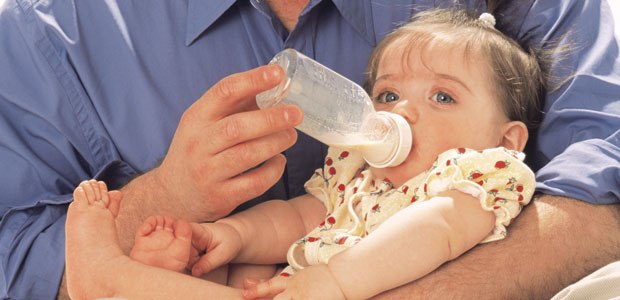Advertisement
Plastic Paradox
The bisphenol A debate rages on

During a recent discussion with my stepdaughter Stephanie, she related that at a gathering of mothers and their toddlers, the topic of microwaving plastic baby bottles was broached.
“One group said it was a myth that microwaving plastic baby bottles was harmful to babies,” said Stephanie, “while the other claimed there were numerous studies that indicate there are legitimate concerns because some types of plastics, when they are subjected to high temperatures, leach into foods and liquids. They were arguing about something called BPA, and I’m not sure which side has its facts straight,” she added.
The Warnings
I told her that the debate concerning bisphenol A (BPA) has been raging for years. BPA is used in the production of polycarbonate plastics and epoxy resins. Polycarbonate plastics are found in many consumer products including food containers and baby bottles. A concern of many researchers is that BPA acts as a hormone disruptor that can mimic natural hormones even when people are exposed to extremely low dosages. BPA is believed to emulate estradiol, a hormone essential for human development and health.
Frederick vom Saal, Professor of Biological Sciences, University of Missouri, reported in a 1998 interview, “The amount of estradiol you’re exposed to throughout your life is also the best predictor of breast cancer. This chemical mimics that hormone. The body can’t tell the difference between BPA and estradiol. In other words, it sees this chemical and it thinks it’s getting exposed to its natural hormone.”
Fetal-exposure studies have reportedly shown that hormone disruptors in males can lead to increased prostate size, altered enzyme activity and steroid receptor numbers, reduced sperm count, and aggressiveness; while females may experience changes in neuroendocrine and uterine function and behaviour.
Vom Saal is also concerned that BPA is leaching into our food sources. The professor warns that “bisphenol A passes out of the plastic, or out of the dental sealant that’s put on your child’s teeth, or out of the lining of cans, into the food or liquid in contact with the plastic.”
The Assurances
The American Plastics Council disagrees with vom Saal’s findings: “Over four decades of extensive safety research on BPA shows that consumer products made with BPA are safe for their intended uses and pose no safety issues for consumers.” Although the council’s website refers to four studies that failed to substantiate vom Saal’s findings, the Missouri researcher claims there are nearly 100 published studies that report adverse effects of BPA.
Stephanie interrupted my account of the controversy and asked, “While the experts fight it out, what should I do?”
You Decide
“Fortunately,” I replied, “there are alternatives to BPA. Two major producers of plastic products do not use BPA. I’m sure there are others. Check with manufacturers to see what chemicals their plastic products contain, or use glass baby bottles.”
Stephanie vowed to do more research regarding the microwaving of plastics. We agreed that it’s up to us, as consumers, to ensure that products entering our homes are safe for everyone, not just our children.




